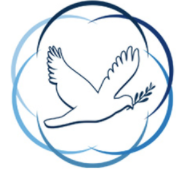Holocaust Denial, Distortion and Celebration in Memes
Location
Littlefoot B Room 124B
Start Date
21-4-2023 10:30 AM
End Date
21-4-2023 11:45 AM
Publication Date
2023
Disciplines
Arts and Humanities | Law | Social and Behavioral Sciences
Description
Once peddled painstakingly through a limited array of tools, hate and antisemitism can now be shared with millions on social media, often without consequences. Posters and pamphlets affixed to lamp posts have effectively been replaced by Internet memes, which fulfill a similar propagandizing purpose. The Toronto Holocaust Museum’s Online Hate Research and Education Project seeks to shed light on this new reality.
Of over 2900 internet memes shared by Canadians that demonstrate hate speech identified and analyzed by the Neuberger Holocaust Education Centre, nearly 6% reference the Holocaust as a theme. This report focuses on how the Holocaust is contextualized in these over 150 memes. We observe how the Holocaust, a longstanding and central theme in hateful ideologies, is downplayed, denied, and celebrated. The report identifies how the memory of the brutal and methodical killing of six million Jews continues to be weaponized today, and seeks to foster public understanding of its continued relevance in the realm of online hate.
The report deals solely with memes that demonstrate hate speech that explicitly reference the Holocaust. It breaks down each of these memes into one of three overlapping categories: Denial, Distortion, and Celebration, based on how the meme interacts with Holocaust memory.
- Holocaust Denial memes are ones that contain messaging defined by the International Holocaust Remembrance Alliance (IHRA) as “discourse and propaganda that deny the historical reality” of the extermination of the Jews by the Nazis.
- Holocaust Distortion memes are the broadest and most difficult category to define. We consider the IHRA’s definition of Holocaust Distortion as “critical threat to Holocaust memory and to fostering a world without genocide”. In practice, this is most often internet memes that demonstrate offensive and inappropriate comparisons to the Holocaust that downplay the Holocaust.
- Holocaust Celebration memes are memes that either celebrate the Holocaust, most often as an achievement, a necessary reaction, or as an inspiration for future genocides.
This report details how each category of meme is used to normalize antisemitism, recruit people into hate movements, and radicalize viewers through desensitization and strategic use of humor. It notes overlap and mixed messaging with Holocaust memes and describes the milieus in which memes denying and celebrating the Holocaust are spread.
Description Format
html
Recommended Citation
Collen, Dan, "Holocaust Denial, Distortion and Celebration in Memes" (2023). International Conference on Hate Studies. 18.
https://repository.gonzaga.edu/icohs/2023/seventh/18
Full Text of Presentation
wf_no
Media Format
flash_audio
Session Title
Genocide Denial in Memes, Online, or in Museums and Denialism in the Law
Type
Panel
Holocaust Denial, Distortion and Celebration in Memes
Littlefoot B Room 124B
Once peddled painstakingly through a limited array of tools, hate and antisemitism can now be shared with millions on social media, often without consequences. Posters and pamphlets affixed to lamp posts have effectively been replaced by Internet memes, which fulfill a similar propagandizing purpose. The Toronto Holocaust Museum’s Online Hate Research and Education Project seeks to shed light on this new reality.
Of over 2900 internet memes shared by Canadians that demonstrate hate speech identified and analyzed by the Neuberger Holocaust Education Centre, nearly 6% reference the Holocaust as a theme. This report focuses on how the Holocaust is contextualized in these over 150 memes. We observe how the Holocaust, a longstanding and central theme in hateful ideologies, is downplayed, denied, and celebrated. The report identifies how the memory of the brutal and methodical killing of six million Jews continues to be weaponized today, and seeks to foster public understanding of its continued relevance in the realm of online hate.
The report deals solely with memes that demonstrate hate speech that explicitly reference the Holocaust. It breaks down each of these memes into one of three overlapping categories: Denial, Distortion, and Celebration, based on how the meme interacts with Holocaust memory.
- Holocaust Denial memes are ones that contain messaging defined by the International Holocaust Remembrance Alliance (IHRA) as “discourse and propaganda that deny the historical reality” of the extermination of the Jews by the Nazis.
- Holocaust Distortion memes are the broadest and most difficult category to define. We consider the IHRA’s definition of Holocaust Distortion as “critical threat to Holocaust memory and to fostering a world without genocide”. In practice, this is most often internet memes that demonstrate offensive and inappropriate comparisons to the Holocaust that downplay the Holocaust.
- Holocaust Celebration memes are memes that either celebrate the Holocaust, most often as an achievement, a necessary reaction, or as an inspiration for future genocides.
This report details how each category of meme is used to normalize antisemitism, recruit people into hate movements, and radicalize viewers through desensitization and strategic use of humor. It notes overlap and mixed messaging with Holocaust memes and describes the milieus in which memes denying and celebrating the Holocaust are spread.


